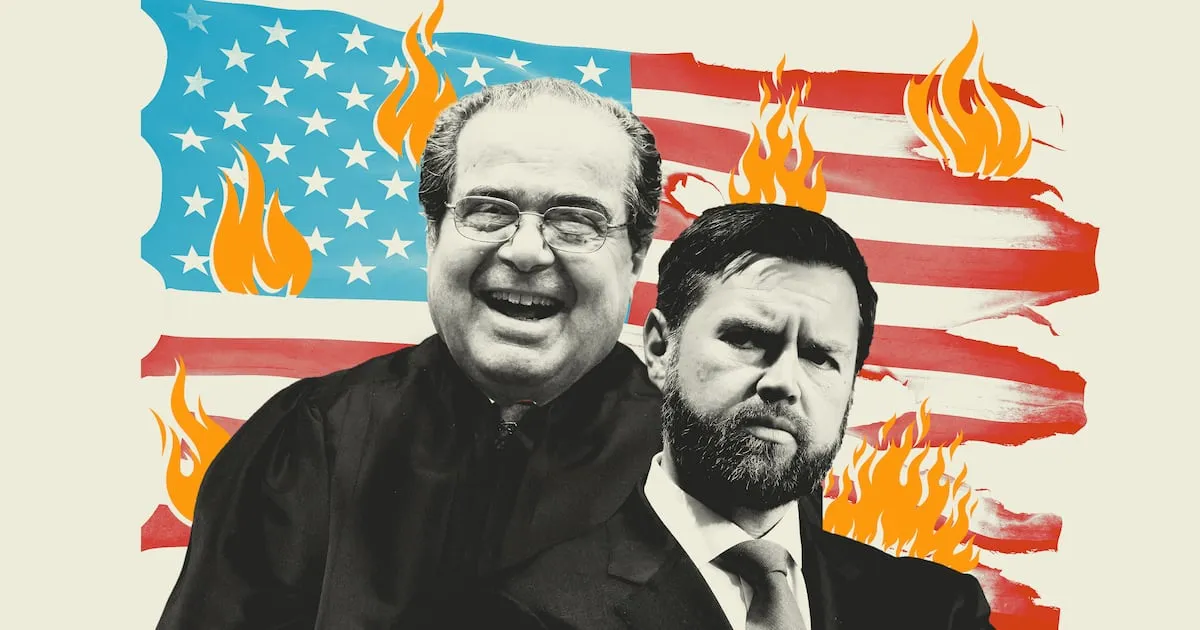
In a surprising political move, Vice President JD Vance has publicly rejected a landmark Supreme Court ruling, stirring controversy within conservative circles. His stance follows a recent executive order signed by President Trump aimed at cracking down on the burning of the American flag, a practice that has sparked outrage during various protests, including anti-Israel and anti-ICE demonstrations.
At the heart of this debate is the 1989 Supreme Court decision in Texas v. Johnson, a pivotal case that established that flag burning is a form of protected free speech under the First Amendment. This 5-4 ruling, authored by liberal Justice William Brennan, was notably supported by the late Justice Antonin Scalia, who acknowledged that while he personally disagreed with flag burning, he believed it was a constitutional right. Scalia famously stated, “burning the flag is a form of expression,” during a 2016 interview, emphasizing that the First Amendment is designed to protect speech, particularly that which is critical of the government.
Despite the established legal precedent, Vice President Vance has taken a bold stand against the Texas v. Johnson ruling. He articulated his views in a post on social media platform X, asserting that the decision was incorrect and siding with Chief Justice William Rehnquist, who dissented in that case. “Few things. 1) Antonin Scalia was a great Supreme Court Justice and a genuinely kind and decent person,” Vance wrote. “2) The President’s EO is consistent with Texas v. Johnson. 3) Texas v. Johnson was wrong and William Rehnquist was right.” This declaration marks a significant departure from traditional conservative legal thought.
The executive order signed by Trump directs the Justice Department to investigate and prosecute individuals involved in flag desecration. Specifically, it instructs Attorney General Pam Bondi to explore all legal avenues to challenge the Supreme Court’s ruling on flag burning. This executive action underscores Trump's commitment to positioning himself as a staunch defender of national symbols, even as it ignites division among his supporters.
The response to Vance's endorsement of Trump's order has been mixed, even among conservative commentators. Some, like Jessie Kelly, have voiced strong opposition, calling the executive order "garbage." Kelly passionately expressed, “I would never in a million years harm the American flag. But a president telling me I can’t, has me as close as I’ll ever be to lighting one on fire.” Similarly, radio host Dana Loesch remarked that while she finds flag burning abhorrent, the government should not have the authority to regulate speech or expression.
Christian broadcaster Erick Erickson also criticized the executive order, noting that while he understood the sentiment behind it, the constitutionality of flag burning as free speech is well-established. “This is actually not brilliant,” he said, highlighting the complexities of the legal landscape surrounding free speech rights.
As the fallout from this executive order continues, it is clear that the debate over flag burning has reignited divisions within the MAGA movement. The challenge to the Texas v. Johnson ruling raises fundamental questions about the limits of free speech and the role of government in regulating expression. With influential figures like Vice President JD Vance and President Trump spearheading this charge, the implications for the future of conservatism in America remain to be seen.